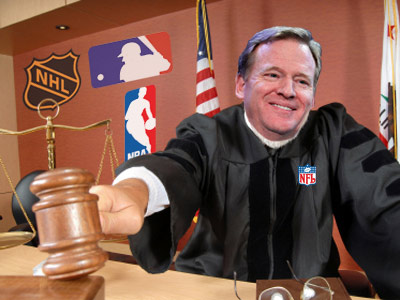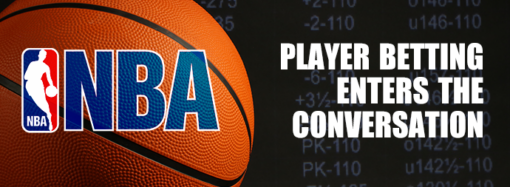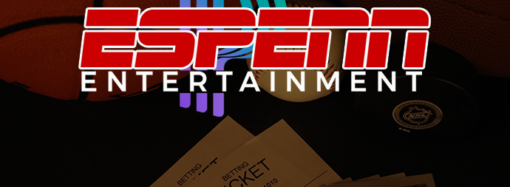Earlier this month the Court of Appeals for the Federal Circuit agreed to reconsider its decision to disallow New Jersey to permit betting on sporting events. In August, the Court of Appeals in Philadelphia upheld a lower court ruling which stated that allowing race tracks and casinos to offer sports betting violated PASPA. But, in
Earlier this month the Court of Appeals for the Federal Circuit agreed to reconsider its decision to disallow New Jersey to permit betting on sporting events. In August, the Court of Appeals in Philadelphia upheld a lower court ruling which stated that allowing race tracks and casinos to offer sports betting violated PASPA. But, in a stunning decision on October 13th, the majority of a federal appeals court vacated that ruling and will now rehear the sports betting case sometime in the future. I spoke to several experts in the field and they almost unanimously agreed that the reason for this decision by the Appeals Court was threefold.
 First and foremost is the current outcry regarding daily fantasy sports (DFS) and the predicament it has put the courts in. DFS is being talked about everywhere and despite arguments by FanDuel and DraftKings that DFS is not gambling, but entertainment, anyone with common sense knows the truth. And naturally that would apply to justices also. Season long fantasy sports rotisserie leagues and contests, which the government envisioned when it allowed an exemption in the UIGEA, is indeed a skill, but fantasy sports determined by an arbitrary salary cap and decided in one day are clearly no different than betting on the games. But the courts also know they have no legal recourse to try and declare that DFS is illegal, since under the regulations of the UIGEA as they are written, the product is perfectly legal. As such, the courts are beginning to look like hypocrites by defending the 2006 UIEGA law that permits DFS, while also defending the 1992 law PASPA that prohibits sports betting. And being forced to decide whether DFS is gambling or not, is obviously something the courts would prefer not to be involved in.
First and foremost is the current outcry regarding daily fantasy sports (DFS) and the predicament it has put the courts in. DFS is being talked about everywhere and despite arguments by FanDuel and DraftKings that DFS is not gambling, but entertainment, anyone with common sense knows the truth. And naturally that would apply to justices also. Season long fantasy sports rotisserie leagues and contests, which the government envisioned when it allowed an exemption in the UIGEA, is indeed a skill, but fantasy sports determined by an arbitrary salary cap and decided in one day are clearly no different than betting on the games. But the courts also know they have no legal recourse to try and declare that DFS is illegal, since under the regulations of the UIGEA as they are written, the product is perfectly legal. As such, the courts are beginning to look like hypocrites by defending the 2006 UIEGA law that permits DFS, while also defending the 1992 law PASPA that prohibits sports betting. And being forced to decide whether DFS is gambling or not, is obviously something the courts would prefer not to be involved in.
The DFS lobby and support is very strong right now and chances are a large percentage of judges and politicians have accounts at FanDuel and DraftKings. With certainty, if the law has to be amended, the courts would prefer to push that decision to the politicians to decide and take that responsibility away from their domain. But they also don’t want to be viewed as hypocrites and many justices have stated a concern that they believe the earlier ruling is violating state rights with regard to sports betting, particularly since New Jersey residents voted in favor of sports betting in the referendum. So the easiest way to alleviate both concerns is simply to say that the court is maintaining an open mind on the issue of sports betting and revisit New Jersey’s appeal putting everything including the issue surrounding DFS put on the table.
What will happen is uncertain but most pundits believe that the courts will rule that sports betting, like DFS and other forms of gambling, is a state’s decision and they can decide whether to allow sports betting the same way they can decide whether to offer DFS, casinos or lotteries. How the courts will get around PASPA is unsure, but this will buy them time to come up with some reasoning.
The second reason for agreeing to the appeal relates to the first point and has to do with the major sports leagues changing their position on gambling. Adam Silver has gone on record saying that the NBA now supports sports betting, while the NFL continues to condemn it and Major League Baseball has been curiously quiet regarding DFS. The other leagues are on record saying that they support PASPA, although behind closed doors many are having second thoughts. A former representative that had ties to MLB informed me that discussions with his colleagues indicated that the leagues fully support any endeavor that will increase their revenues:
“DFS has been the golden goose that keeps on laying eggs,†the representative told me “and they don’t want it to stop. One of my good friends showed me just how much the league is making from their sponsorship with FanDuel and what the projections are like in the next 5 years. Team owners and executives can’t ignore that and they know that with sports betting those sponsorship revenues will go even higher. Everyone is aware just how much teams in Europe realize from their sponsorships and those numbers will be astronomical if companies like Caesars or William Hill can sponsor teams too. And the concern about game fixing won’t be solved with the current support of the ancient law. They just have to be more deliberate with cheaters. But I can assure you what they don’t want is the courts and politicians digging more into DFS and possibly sabotaging their current relationships with the fantasy sports companies. So on the record they have to appear united against sports betting but off the record most of them sent representatives to the federal courts to let them know that their objections are for show only at this point.â€
Asked about the NFL the representative simply said, “We all know Roger Goodell’s opinion on the matter, but right now his voice is muted and his personal beliefs are irrelevant.â€
The third reason that many believe is responsible for the court’s reversal is political. The courts didn’t want to be seen as interfering in a presidential campaign when you have Chris Christie, an outspoken advocate for sports betting in New Jersey running for the Republican nomination. But with Christie a clear outsider now with virtually no chance of winning the nomination, those concerns have dissipated. Moreover the current GOP front runner, Donald Trump and the likely Democratic nominee Hillary Clinton have no stated moral objections to gambling expansion, so there is likely not going to be any political fallout if the courts indeed reverse their decision and allow race tracks and casinos in New Jersey to offer sports betting.
“It’s a perfect storm for the courts,†one lawyer told me. “The DFS leak and the new stance by some leagues have given the courts a good reason to have the en banc session regarding sports betting and I have no doubt that when the votes are counted, New Jersey will be offering sports betting in Atlantic City and at Monmouth Park. And if they get that, look for a half dozen other states to join suit and inevitably sports betting will be legal for all states that want it. And really it’s about time.â€
So with the courts now willing to hear New Jersey’s appeal with a more open mind, the chance of legal sports betting in the U.S. is more feasible than ever. If the courts rule for New Jersey then at least 6 other states are prepared to ask for the same treatment as they have sportsbetting bills on the table and the commerce clause of the constitution will likely force the courts to allow those states to offer sports betting as well. Inevitably it will lead to an amendment or repeal of PASPA since more than likely all leagues except perhaps the NCAA will throw their support behind the new rule as well. Fortunately for the leagues and the betting public it’s a win-win scenario for all concerned.

















Leave a Comment
Your email address will not be published. Required fields are marked with *